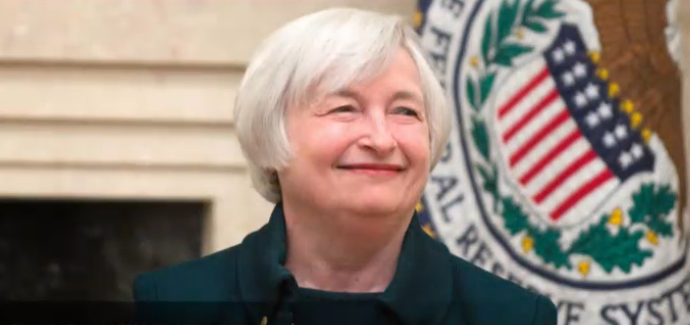It has been a lousy few years for the relationship between economic data and financial markets. Whether data is strong or weak, the markets have pretty much ignored it. All the market seems to really care about is what the central banks are going to do. But at least the economic data has company to share its misery: the market now seems to be ignoring geopolitical events as well.
The UK’s vote to leave the EU was seen as bad news for the market. Just as with other negative events, the market expects the central bank to step in with a monetary stimulus to make everyone feel better. So, if the result of a geopolitical event is positive then risk assets rally, and if the result is negative the central bank can offset any downside for risk assets. Heads you win, tails you don’t lose.
Towards the end of last year the market had been expecting the Bank of England (BOE) to hike rates by 2016 at least and then proceed with about one hike a year (chart 1a). When worries about the global economy worsened at the beginning of the year, the probability of rate hikes was reduced. But in February, when the date of the referendum was announced, the market decided that monetary policy would most likely remain on hold for another three years. Following the surprise result to leave, the market is now fully pricing in one rate cut by the BOE this year. Probably the only reason the market is not pricing in more cuts is because the BOE is averse to zero or negative rates. But there could still be an expansion of quantitative easing.
So much so sensible: this is a UK-specific shock and in the absence of fiscal policy the BOE has to deal with the shock. But the market has also decided that the Federal Reserve (Fed) is going to be on hold for another couple of years as well (chart 1b). The Fed has been striking a more dovish tone of late, but there was still a substantial drop in rate expectations following the UK referendum result. For example, there was about a 50% probability of a rate hike priced in for 2016, which was wiped out overnight. Now the first rate hike is not fully priced in until the end of 2018.
This impact on the Federal Reserve looks a little bit surprising. The trade channel between the UK and the US is significant but hardly large enough to affect the Fed. The GBP fell a lot against the USD, but the broader index of USD strength is little changed. That only leaves financial contagion channels, but if anything the market reaction has been much more restrained than almost anyone expected beforehand. There looks to be something inconsistent between the UK financial markets and the expected need for the Fed to react.
Take for example the FTSE 100, which is above its pre- referendum levels (chart 2). Of course, the FTSE 100 is not really a UK index; the vast majority of revenues come from overseas. A weaker currency increases the GBP value of those foreign earnings. The more domestic-oriented FTSE 250 has fared worse, but still recovered a lot of the ground that was lost when the referendum result was announced.
The currency impact is not just important for revenues, it is also important for foreign buyers. If you are sitting outside the UK, then you don’t care about the GBP value of the FTSE; you care about the value in your currency. So BOE rate cuts help you less because rate cuts push down the currency. Even if existing holders are mostly hedged, the marginal buyer will look at the FTSE and decide if it is worth buying. For example, on a USD-basis both the FTSE 100 and FTSE 250 have fallen substantially but not recovered. In other words, foreign investors are not attracted to buy UK equity despite the fact that it is now cheaper to them.
Over in the rest of the EU, many in the market expected a pretty harsh risk off reaction in the Eurozone. Sure enough, on the day both Italy and Spain sold off by 20 basis point and Germany rallied by the same amount (chart 3). But soon after Spain started to rally (their election was relatively market friendly) and even Italy rallied. Now Spain trades tighter to Germany than it did before the UK referendum, and Italy has the same spread – but at a lower absolute rate.
The market seems very blasé about the consequences for the rest of the Eurozone of the UK’s departure. Once again there is an expectation that the central bank will step in to make everything better. But the European Central Bank is finding it more and more difficult to conduct monetary policy (largely due to its own rules), so this may turn out to be too optimistic. And the market is also implying that if anything the UK leaving will drive the Eurozone closer together, rather than further apart. Given opinion polls in many countries, that also looks dangerously optimistic.
In a globalised world, the interdependence of major economies and their central banks is both strong and complicated. But if anything it looks like the market may be expecting too big an impact on the US, and too little of one on the remainder of the EU.
Joshua McCallum is Head of Fixed Income Economics UBS Asset Management.






